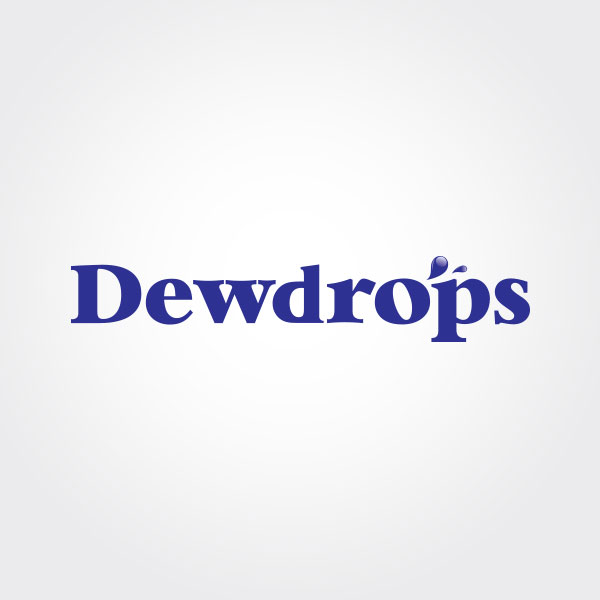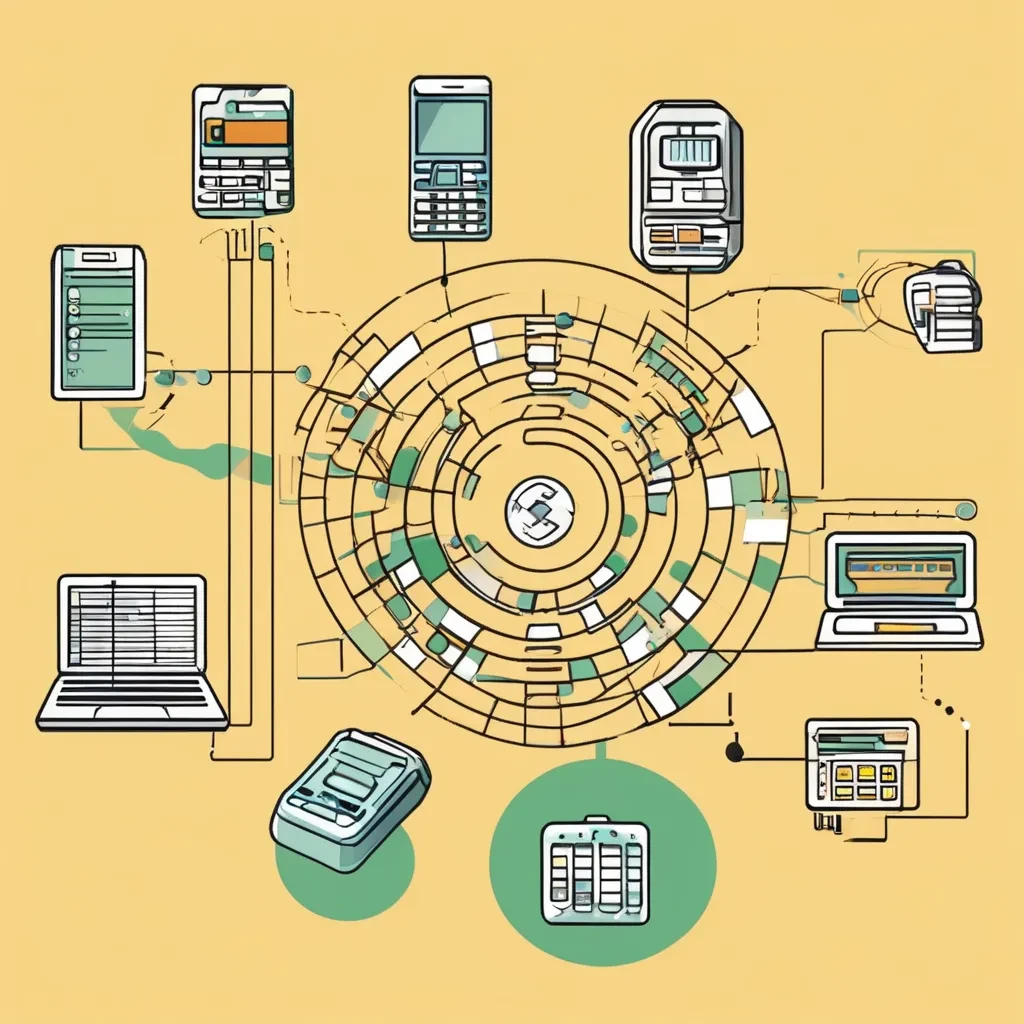Leveraging Blockchain for Secure Supply Chains: Lessons from Industry Leaders
 DewDrops
DewDrops
In today’s global market, supply chain security is a top priority for businesses, especially in the electronics industry. Counterfeit products, inefficiencies, and lack of transparency are constant challenges for companies navigating complex logistics. Recently, in Lebanon, supply chain vulnerabilities were exposed when Apollo pagers used by Hezbollah were discovered to have been counterfeited, allegedly by Israeli operatives. These counterfeit devices enabled Israel to intercept Hezbollah’s communications, demonstrating how compromised electronics in the supply chain can have serious security implications. This incident highlights the importance of protecting supply chains from counterfeit goods, particularly in sectors dealing with sensitive electronics. Blockchain technology, with its ability to provide enhanced transparency, traceability, and security, offers a solution to such vulnerabilities. Major companies like IBM, Lenovo, and Foxconn have already adopted blockchain to streamline operations and ensure the integrity of their supply chains. In this article, we will explore real-world examples of blockchain's application in supply chains and uncover valuable lessons that can be applied to businesses across industries.

Real-World Examples and Case Studies
IBM and Lenovo: Streamlining Warranty Management
IBM and Lenovo have successfully leveraged blockchain to track hardware and software components throughout their supply chain. By integrating blockchain, they were able to reduce the occurrence of counterfeit parts and improve warranty management processes. This ensures that both companies and consumers can trust the authenticity and quality of the products they use. Blockchain’s immutable record-keeping allows companies like Lenovo to maintain accurate, tamper-proof histories of components, leading to higher efficiency and customer trust.
Provenance and Consumer Electronics: Transparency for Consumers
Provenance, a supply chain transparency company, has piloted projects that allow consumers to verify the authenticity of products and understand their journey from origin to shelf. Using blockchain, Provenance enables customers to scan a product and access detailed information about its production, transportation, and handling. This type of transparency builds trust with consumers and offers companies a competitive advantage by providing verifiable claims about their products’ origins.Foxconn's Financing Platform: Enhancing Supplier Transactions
Foxconn, one of the world’s largest electronics manufacturers, has implemented a blockchain-based financing platform to improve transparency and trust in transactions with its numerous suppliers. By using blockchain, Foxconn has streamlined payments, reduced fraud, and enhanced supplier collaboration. This case demonstrates blockchain’s ability to facilitate secure financial transactions in large, complex supply chains where trust and efficiency are critical.Walmart: Food Safety and Traceability
In another high-profile use of blockchain, Walmart has partnered with IBM to enhance food safety and traceability in its supply chain. Using blockchain, Walmart can now track the journey of produce from farm to store in seconds, compared to the days it previously took using traditional systems. This has helped Walmart ensure product quality, prevent the spread of foodborne illnesses, and improve overall efficiency in its supply chain. The transparency provided by blockchain has set a new standard in the food industry for supply chain management.
Lessons Learned from These Cases
The examples of IBM, Provenance, Foxconn, and Walmart illustrate several key lessons for companies looking to implement blockchain technology in their supply chains:
Transparency and Traceability: Blockchain’s ability to create an immutable, transparent ledger is invaluable for industries where trust is paramount. It ensures that products are authentic and traceable from origin to consumer, reducing risks associated with counterfeit goods and fraud.
Improved Efficiency: By reducing paperwork, eliminating manual processes, and speeding up verification, blockchain can dramatically improve supply chain efficiency. The ability to quickly trace products, as seen in Walmart’s case, enhances decision-making and risk management.
Security and Fraud Prevention: Blockchain’s decentralized and tamper-resistant nature makes it ideal for preventing fraud. Companies like Foxconn use blockchain to secure financial transactions, while Lenovo and IBM use it to guarantee the authenticity of hardware components.
Collaborative Ecosystem: Blockchain can also foster better collaboration among suppliers, manufacturers, and retailers. With a single source of truth, stakeholders in the supply chain can work together more effectively and trust the shared data.
Adoption and Future Predictions
Blockchain adoption in supply chain management is growing steadily, especially in industries that require transparency, such as food, pharmaceuticals, and electronics. However, while many large corporations have embraced blockchain, widespread adoption still faces challenges, including regulatory uncertainty, integration with existing systems, and cost considerations.
Despite these challenges, the future looks promising for blockchain in supply chains. As businesses continue to see the tangible benefits of blockchain, more industries are expected to adopt the technology. According to a report by Research and Markets, the blockchain supply chain market is projected to grow from USD 253 million in 2020 to USD 3.2 billion by 2026. This growth will be driven by increasing demand for transparency, improved security, and the ability to streamline operations.
Opportunities for Businesses
Businesses looking to enhance their supply chain operations can find opportunities in blockchain technology by focusing on:
Niche Solutions: Offering specialized blockchain solutions tailored to specific industries or supply chain challenges can open new market opportunities.
Partnerships and Integrations: Collaborating with existing blockchain platforms or developing complementary services can accelerate adoption and drive innovation.
Regulatory Compliance: Businesses must stay ahead of regulations, ensuring their blockchain solutions meet compliance requirements, particularly in industries dealing with sensitive goods or cross-border transactions.
Conclusion
Blockchain is already proving to be a game-changer in supply chain management, offering improved transparency, security, and efficiency. Companies like IBM, Lenovo, Foxconn, and Walmart have demonstrated the real-world benefits of implementing blockchain solutions in their supply chains. As the technology continues to evolve, more industries are expected to adopt blockchain, paving the way for a future where secure, transparent, and efficient supply chains are the norm.
__________________
References:
Research and Markets. (2020). Blockchain in Supply Chain Market Report.IBM Blockchain. (n.d.). IBM Food Trust – A New Era for the World’s Food Supply.Foxconn Blockchain Financing Platform. (n.d.).
Subscribe to my newsletter
Read articles from DewDrops directly inside your inbox. Subscribe to the newsletter, and don't miss out.
Written by

DewDrops
DewDrops
Daily Digital Business Insights